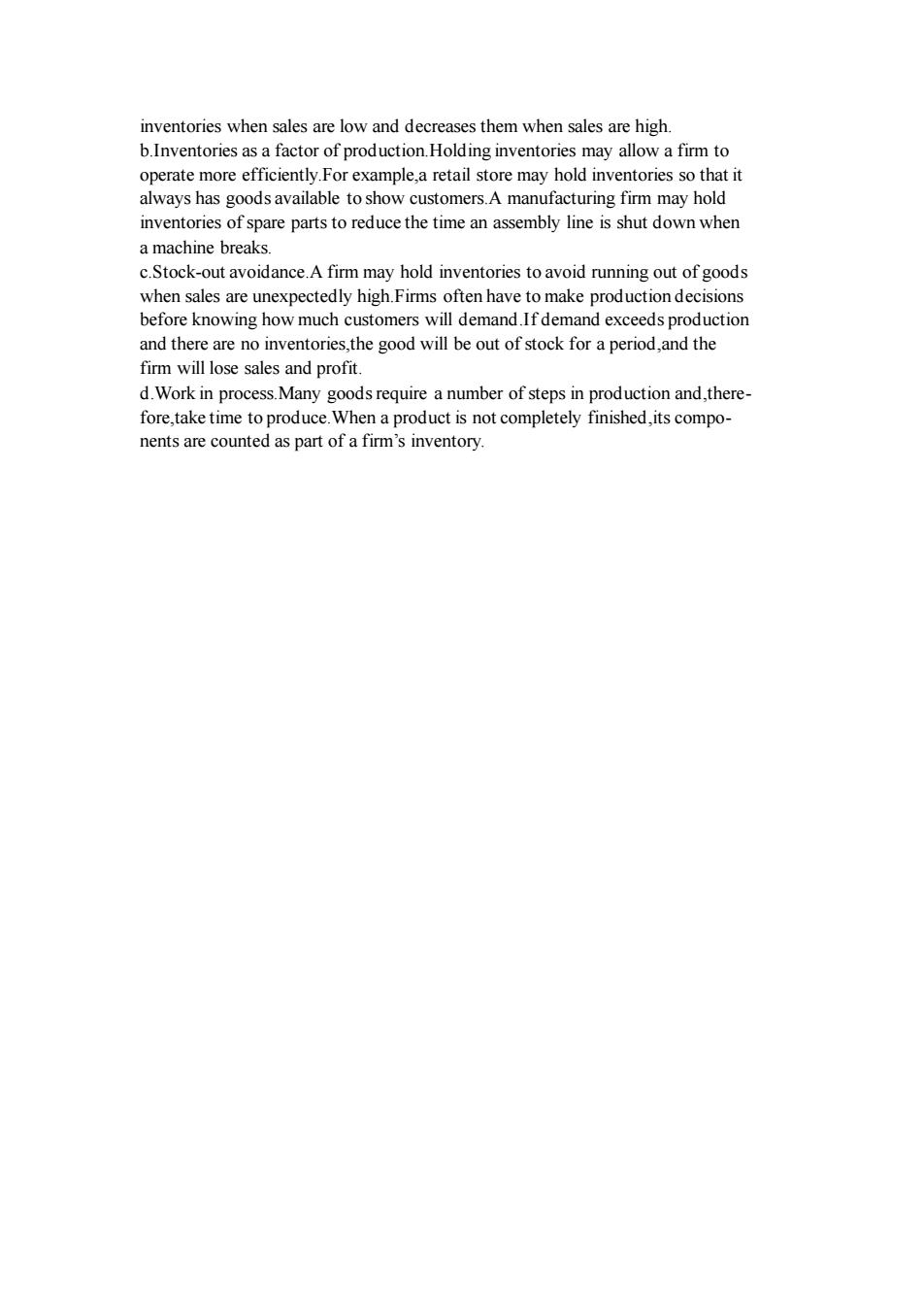正在加载图片...

inventories when sales are low and decreases them when sales are high b.Inventories as a factor of production.Holding inventories may allow a fim to operate more efficiently.For example,a retail store may hold inventories so that it always has goods available to show customers.A manufacturing firm may hold inventories of spare parts to reduce the time an assembly line is shut down when a machine breaks. tock-out avoidance.A firm may hold inventories toavoid running out of good when sales are unexpectedly high.Firms often have to make production decisions before knowing how much customers will demand.If demand exceeds production and there are no inventories,the good will be out of stock for a period,and the firm will lose sales and profit. d.Work in process.Man ods require a number of steps in production and,there ketime to produce When a product is not competelyfinished.itsc nents are counted as part of a firm's inventory.inventories when sales are low and decreases them when sales are high. b.Inventories as a factor of production.Holding inventories may allow a firm to operate more efficiently.For example,a retail store may hold inventories so that it always has goods available to show customers.A manufacturing firm may hold inventories of spare parts to reduce the time an assembly line is shut down when a machine breaks. c.Stock-out avoidance.A firm may hold inventories to avoid running out of goods when sales are unexpectedly high.Firms often have to make production decisions before knowing how much customers will demand.If demand exceeds production and there are no inventories,the good will be out of stock for a period,and the firm will lose sales and profit. d.Work in process.Many goods require a number of steps in production and,therefore,take time to produce.When a product is not completely finished,its components are counted as part of a firm’s inventory